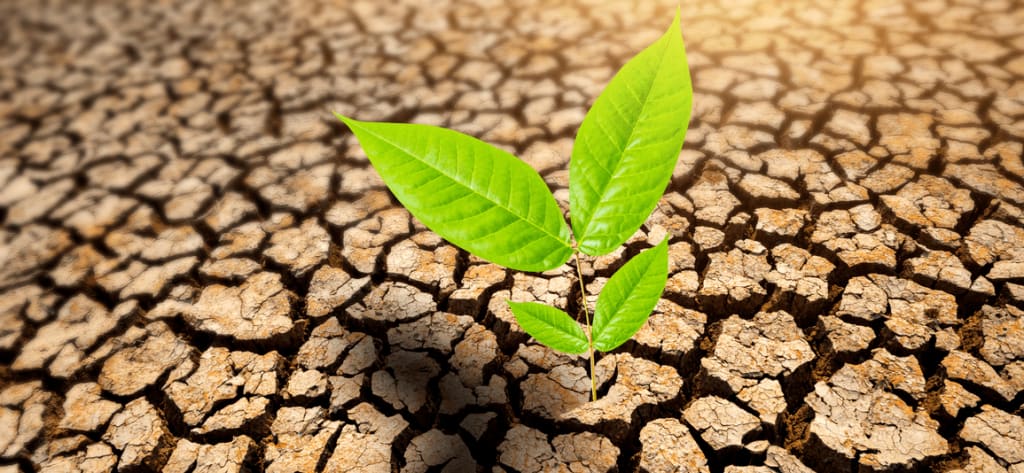Exploring the Climate Crisis: Urgent Action for a Sustainable Future
The science behind the crisis

Introduction
Soil is facing a rare crisis: climate change. This multifaceted wonder forms the extraordinary scene of our planet and has emerged as the defining challenge of our time. The effects of climate change are spreading across environments, economies and social order and require critical measures to contain its impact. But despite its severity, the reaction regularly polluted the complexity and corrupted the political-economic interface. This article explores the core of the climate crisis, the variables behind it, the current state of the global response, and the changes needed to ensure a viable future. Understanding science
At the heart of the climate crisis is the increase in atmospheric carbon dioxide (CO2), which is mainly caused by human activities. Mechanical change reached a tipping point as carbon emissions increased due to the increased use of fossil fuels in the age of vitality, in transportation and industry. This increase in carbon dioxide contributes to the greenhouse effect, which warms the Earth's environment and contributes to global warming.
The science behind the crisis
The science of climate change is based on strong evidence. Human activity, mainly the burning of fossil fuels, has caused a 95% chance that we are behind the rapid increase in CO2 levels. A global population boom combined with increased use of facilities that release toxins such as methane is exacerbating the crisis.
Current status
As a result of these increased emissions, the Earth is about 1 degree Celsius warmer than in pre-industrial times. Collectively the UN suggests that warming of 1.5 to 2 degrees Celsius may still be reasonable, but the rate of this warming is worrying. With projections showing a conceivable rise of 1.5 degrees within an insignificant decade, the action scare is undeniable.
Effects of climate change
The effects of climate change are still evident around the world. From extreme climates and rising ocean levels to food and water shortages, the results are desperate. Frequent disasters such as typhoons, dry seasons and rapidly spreading wildfires that gradually increase in size disrupt communities and biological systems. Sea level rise is destabilizing coastal cities, uprooting millions of people. In addition, entire island nations can disappear beneath the waves, as the ongoing battles in the Pacific show.
A global response
The Paris Agreement of 2016 was an interesting agreement that brought countries together for the common goal of limiting global warming. The understanding showed that by the year 2100 the temperature will rise up to 1.5-2 degrees Celsius. Be that as it may, the adequacy of this argument has been hindered by certain factors.
Challenges and difficulties
Despite initial positive thinking, global CO2 levels have continued to rise since the Paris Agreement mandate. The withdrawal of the United Nations, one of the largest broadcasters in the world, caused a serious blow to the validity of the agreement. Countries such as China and Russia face a backlash over their isolationist ambitions, while others, including Turkey and Poland, continue to use carbon-based monitoring devices. Climate change skeptics are clouding the debate, perpetuating deception and destroying progress.
Promising performance
Either way, there is a silver lining. Positive energy grows when countries, cities and people realize the need for change. Countries like India, Morocco and Gambia have made significant progress in choosing renewable energy. Ingenious arrangements such as open traffic express in cities boost the economy and reduce dependence on private vehicles. These actions highlight the potential for change, showing that a transition to a sustainable future is conceivable.
The Way Forward: A Call for Systemic Change
To fight the climate crisis in a feasible way, the world must make changes on various fronts. The status quo of unlimited development and unsustainable grinding equipment is difficult. Business as usual is now illegitimate in both finance and politics. Or perhaps there is a fundamental shift in how we create, consume and manage. Transition to renewable energy: the basis for combating climate change is a rapid transition from fossil fuels to renewable energy sources. Solar, wind, hydropower and geothermal energy projects are critical for reducing carbon emissions and ensuring economic viability.
Rethinking transport: Reforming transport frameworks is crucial. Reducing the use of personal cars, promoting electric vehicles and promoting open traffic can significantly reduce emissions from the transport industry.
Economic use: People can play an important role in obtaining economic use. Reducing meat consumption, saving water and minimizing waste contribute to a more environmentally friendly lifestyle.
Political action and organization are changing: governments must take visible steps to encourage economic prices, set targets to reduce unpleasant emissions and sanction policies that encourage green development.
Global commitment: Climate change can be a global challenge that requires collective action. Countries must work together to share information, assets and progress to bring about large-scale change.
Conclusion
The climate crisis is an existential challenge that requires swift and collective action. The science is clear, the implications are still evolving, and the window for meaningful change is narrowing. While the complexity of the issue and resistance from some parties can be frustrating, trust is growing in the world. From renewable energy projects to changes in approach, there are impressions of a more viable future.
In any case, a single personal action is not enough; systemic change is fundamental. Business models, political structures and social norms must undergo radical changes to adapt to the basic principles of combating climate change. By embracing renewable vitality, looking at transportation, supporting sustainable use, embracing dynamic arrangements, and developing global participation, you are ready to pave the way for a stronger, more dynamic planet.
The road ahead is difficult, but the stakes are also high enough to ignore. All of us - governments, businesses, communities and individuals - have a responsibility to act. This is far from a doomsday disaster; it almost guarantees a sustainable planet for ages to come. The clock is ticking and now is the time to act.





Comments
There are no comments for this story
Be the first to respond and start the conversation.